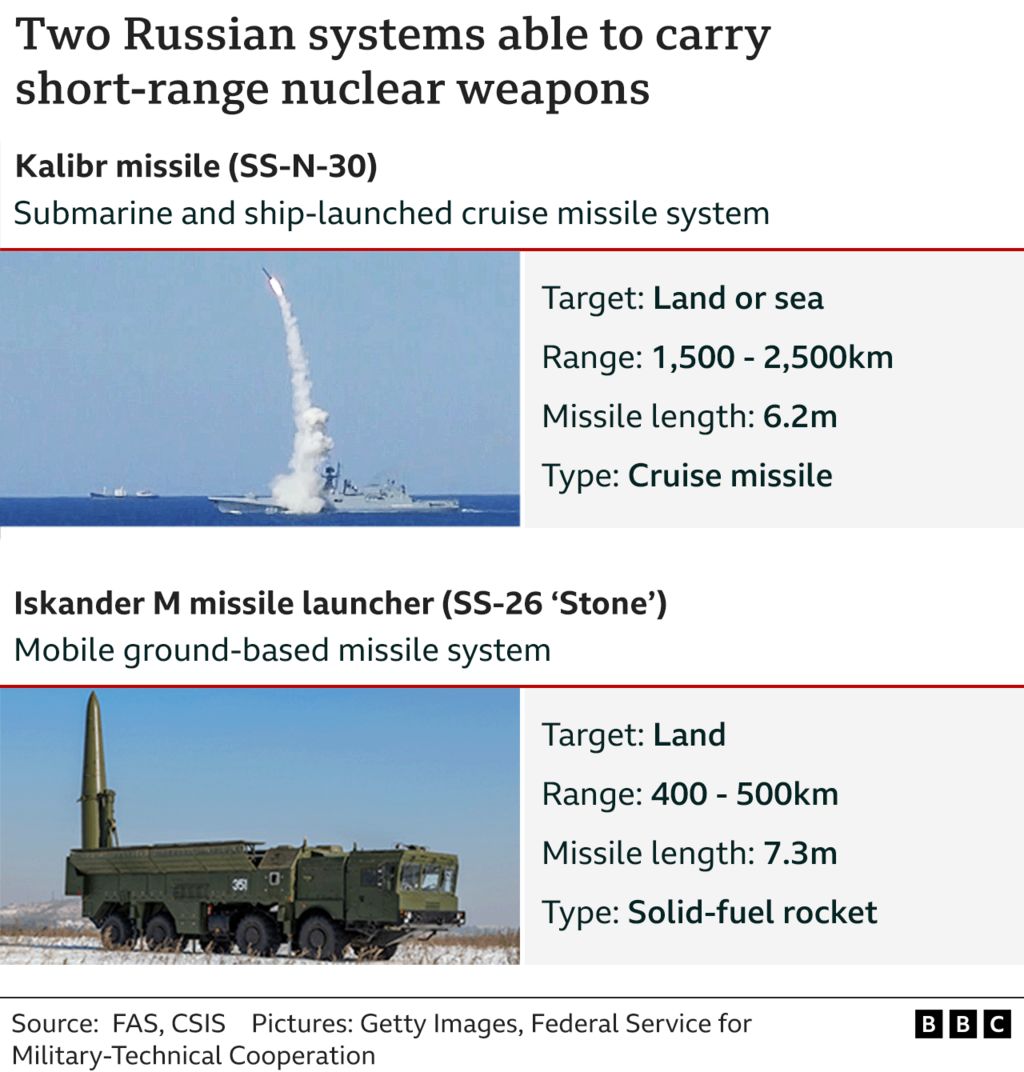Ahmedabad
(Head Office)Address : 506, 3rd EYE THREE (III), Opp. Induben Khakhrawala, Girish Cold Drink Cross Road, CG Road, Navrangpura, Ahmedabad, 380009.
Mobile : 8469231587 / 9586028957
Telephone : 079-40098991
E-mail: dics.upsc@gmail.com

Tactical Nuclear Weapons
News: During a recent event, President Putin revealed that Russia has successfully transported its initial batch of tactical nuclear weapons to Belarus.
Background:
• However, during the mega event, Putin asserted that it would 'only' be used if Russia's territory or state was threatened.
• 'Why should we threaten the whole world? I have already said that the use of extreme measures is possible in case there is a danger to Russian statehood
What are Tactical Nuclear Weapons?
• Tactical nuclear weapons are nuclear weapons that are designed to be used on a battlefield in military situations, mostly with friendly forces in proximity and perhaps even on contested friendly territory.
• They are generally smaller in explosive power and shorter in range than strategic nuclear weapons, which are intended to target the enemy’s interior far away from the war front.
• Tactical nuclear weapons include gravity bombs, short-range missiles, artillery shells, land mines, depth charges, and torpedoes that are equipped with nuclear warheads.
Advantages:
• They can deter a conventional attack by creating a credible threat of escalation and retaliation.
• They can counter specific military targets such as large formations of infantry and armor, command and control centers, airfields, missile sites, and naval vessels.
• They can also create psychological effects such as fear, confusion, and demoralization among the enemy forces.
• They can reduce the risk of collateral damage compared to strategic nuclear weapons, as they have lower explosive yields and shorter ranges.
• They can also be designed to minimize the radioactive fallout and environmental impact by using enhanced radiation or low-yield warheads.
Disadvantages:
• They can increase the risk of nuclear war by lowering the threshold for nuclear use and blurring the distinction between conventional and nuclear weapons.
• It has the potential to trigger arms race or proliferation of nuclear weapons.
• They can cause severe humanitarian and environmental consequences such as mass casualties, radiation sickness, genetic mutations, cancer, and long-term contamination.
• They can face technical and operational challenges such as reliability, accuracy, security, command and control, and delivery systems. They can also be vulnerable to sabotage, theft, accidents, or unauthorized use by rogue actors or terrorists.

Address : 506, 3rd EYE THREE (III), Opp. Induben Khakhrawala, Girish Cold Drink Cross Road, CG Road, Navrangpura, Ahmedabad, 380009.
Mobile : 8469231587 / 9586028957
Telephone : 079-40098991
E-mail: dics.upsc@gmail.com
Address: A-306, The Landmark, Urjanagar-1, Opp. Spicy Street, Kudasan – Por Road, Kudasan, Gandhinagar – 382421
Mobile : 9723832444 / 9723932444
E-mail: dics.gnagar@gmail.com
Address: 2nd Floor, 9 Shivali Society, L&T Circle, opp. Ratri Bazar, Karelibaugh, Vadodara, 390018
Mobile : 9725692037 / 9725692054
E-mail: dics.vadodara@gmail.com
Address: 403, Raj Victoria, Opp. Pal Walkway, Near Galaxy Circle, Pal, Surat-394510
Mobile : 8401031583 / 8401031587
E-mail: dics.surat@gmail.com
Address: 303,305 K 158 Complex Above Magson, Sindhubhavan Road Ahmedabad-380059
Mobile : 9974751177 / 8469231587
E-mail: dicssbr@gmail.com
Address: 57/17, 2nd Floor, Old Rajinder Nagar Market, Bada Bazaar Marg, Delhi-60
Mobile : 9104830862 / 9104830865
E-mail: dics.newdelhi@gmail.com